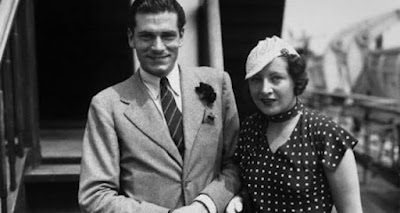I attended a Michael Bublé concert in June this year, my fourth time hearing him live, and I've spent the last several months mulling over why this particular Evening with Michael Bublé fell so incredibly flat for me when it should have been amazing.
First, there was some drama over buying the tickets. I don't like drama, and I don't like it when other people cause drama in my life. Even if that drama really isn't that big, it still has an effect. So, there is the possibility that the ticket-buying experience with friends was just enough of a nightmare to ruin the entire evening.
But, more than that, I'm disappointed in Michael himself.
He's a crooner, and he presents a very classy image on his albums and even in his Christmas specials (which he's not doing anymore, sadly).
But in person, on the stage, he's crass. He's always been crass and I've always overlooked it, but I'm tired of pretending I'm fine with his behavior.
By being crass he lowers the quality of his performance and my enjoyment. I was even more disappointed in him than in past times because I actually had my younger sister with me and having her listen to him tell his jokes and swear made me realize that I didn't really want her listening to him and I didn't want to listen to him anymore either. If I could have, I would have walked out, but that's hard to do when you're with others.
I'm not sure why it took me four concerts to come to this conclusion, but better late than never, as they say.
Maybe I'm expecting too much of him, but I don't think so. How hard is it present a clean show when he knows his audience has families in it? Or, heaven forbid, does he swear like a sailor in front of his own kids? There's a terrifying thought.
I wish he didn't demean himself and the art form he's trying to keep alive by his behavior on the stage, but he does. So I'm left with a decision. I can continue listening to his music or I can give him up entirely. Or is there something else in-between?
I love Michael's music. He has a beautiful, silky voice that makes me smile.
But apart from his music, I'm done with him.
No more fanclub, no more concerts, just a new album every couple of years after I learn its content. Nope, sorry Michael, not buying them outright anymore until I'm sure the songs you're singing continue to be of the same standard I'm used to, from your music at least. I wish I could stay that you met a higher standard in person, but that's just not the case.
Maybe someday he'll figure out that crass behavior in his concerts doesn't serve him well. Until then, I'll relax to his Christmas album as the holiday season approaches and allow myself to enjoy what I consider to be an album of pure delight and joy.




























